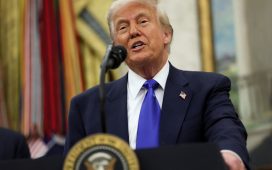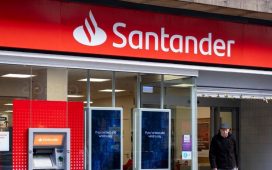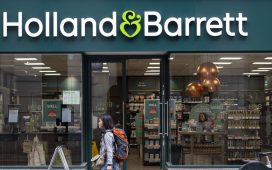Andrew Neil has hit out at the Government’s potential Spring Budget tax cuts as the country still faces the highest rates seen since World War Two.
Posting on social media platform X, the veteran broadcaster perused the two primary proposed tax cuts, including a one percent reduction in employee National Insurance (NI) and an extension of the fuel duty freeze, as reported by The Times.
The potential one percent NI reduction, which was shared exclusively with Express.co.uk’s political editor Sam Lister, would cost around £5billion a year – £2billion less than cutting the same amount off income tax.
Meanwhile, Mr Neil noted the fuel duty extension freeze would cost the Government around £1billion a year.
However, he continued in his X post: “If the PM/Chancellor think that will change Tory fortunes in the coming election I have bridge to sell them.” (sic)
He continued: “These mooted tax cuts would not prevent Britain’s taxes as a share of national income climbing to a record high.
“Tax revenues, which accounted for about 33% of national income on the eve of the pandemic, are set to climb to almost 38% by 2028-29 — the highest since the end of the Second World War. Remember that when Tories talk of tax-cutting on Budget Day.” (sic)
This follows reports from the Institute for Fiscal Studies (IFS) that show this parliament has seen the largest increase in taxes since records began.
According to the IFS, the stark increase in tax revenue – due to frozen thresholds and increases in corporation tax – will raise upwards of £100billion in this fiscal year, equivalent to around £3,500 more per household (not shared equally).
It noted: “The Government may decide to announce tax cuts in the run-up to the next election. But there is no world in which this parliament – or indeed the period since Rishi Sunak became Prime Minister – turns out to be anything other than a tax-raising one.”
With the General Election expected to be called in the latter half of 2024, analysts have been describing the Chancellor’s upcoming Spring Budget as a “last chance saloon” to win back the electorate.
The most recent YouGov/Times voting intention polls indicate that the Conservatives have 20 percent of the vote, which is four percent lower than the previous poll conducted on February 14-15.
Labour is currently taking the lead at 46 percent, an increase of two percent since the last. Elsewhere, the Liberal Democrats have nine percent of the vote, the Green Party has seven percent, and Reform UK has 13 percent.
Laith Khalaf, head of investment analysis at AJ Bell said the Budget is “certainly one of the key platforms” for the Conservatives to lay out their economic pitch before the general election, so “we can expect it to be a highly politicised Budget”.
He continued: “Jeremy Hunt may want to make use of the Parliamentary tradition that allows chancellors to have a stiff drink while delivering the Budget, given the high stakes involved, and the fact the UK has slipped into recession.
“We know the Government would dearly love to splash the cash on popular giveaways and create some clear blue water between themselves and Labour on fiscal policy in the bargain.”
However, he noted that, while cuts to National Insurance or income tax would seem “most likely”, with tax thresholds frozen, any sweeteners announced in the Budget are “sleight of hand”.
He added: “The Chancellor will be robbing Peter to pay Peter, taking with one hand and giving with the other.”
Mr Hunt will announce the Spring Budget on Wednesday, March 6.











